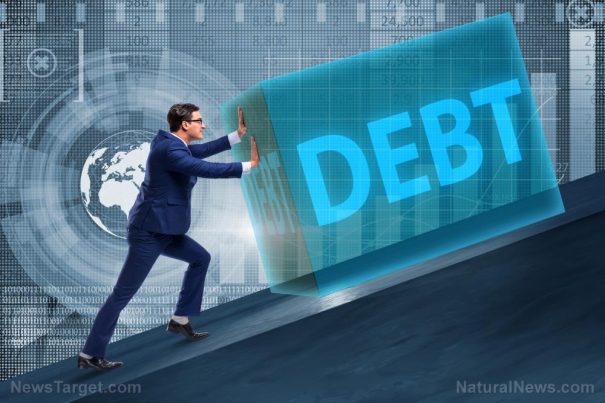
Subprime borrowers are increasingly missing credit card and loan payments in the face of record inflation
Tuesday, May 24, 2022 by Cassie B.
http://www.naturalnewsreports.com/2022-05-24-subprime-borrowers-missing-credit-loan-payments.html

America’s healthiest consumer lending environment on record appears to be coming to a close as consumers with low credit scores are falling behind on their payments for personal loans, credit cards and car loans in droves.
The credit reporting firm Equifax reports that the share of subprime credit cards and personal loans whose payments are at least 60 days overdue has been rising faster than normal. These delinquencies rose month over month in March for the 8th consecutive time, approaching pre-pandemic levels. Meanwhile, in February, delinquencies on subprime car loans and leases reached an all-time high since tracking began in 2007.
It’s a sharp turn from the consumer behavior noted during the pandemic, when some lenders were surprised to find that instead of defaulting en masse, many people with less-than-perfect credit built up savings and paid off debts. This was attributed largely to the government’s response in the form of stimulus payments and child tax credits that enhanced the financial health of many families.
Now, however, as these benefits run out, subprime borrowers are feeling the pinch. People in this category often have less savings and lower incomes, and with inflation hitting its highest level in four decades, many families are now being forced to choose between paying off their monthly loans or covering expenses like food.
The higher prices on food and gasoline are understandably constraining U.S. households, and some lenders are concerned that consumers will not be able to keep up with payments moving forward as any financial benefits they accrued during the pandemic start to subside, such as any excess savings that people managed to build up in the early days of the virus.
The latest Equifax data shows that 11 percent of general-purpose credit cards held by people whose credit scores are below 620 were at least two months behind on payments in March; the figure for a year prior was 9.8 percent. At the same time, delinquencies on personal loans and lines of credit rose to 11.3 percent from 10.4 percent the year before. These categories saw pandemic lows of 7.5 and 8.3 percent respectively last July.
When it comes to delinquencies on car loans and leases, meanwhile, a record 8.8 percent of subprime accounts were behind on their payments by at least 60 days in February. Although this dropped slightly to 8.5 percent in March, that month nevertheless registered the second highest level of delinquencies on record.
It is interesting to note that fewer people fall into the subprime credit score brackets now than at the outset of the pandemic. While 18.6 percent of American adults with credit scores had a score that was below 600 in 2020, just 15.5 percent fell into that group last year.
Most Americans are now living paycheck to paycheck
However, most Americans are living paycheck to paycheck these days, with the latest estimation from PYMNTS and LendingClub showing that 62 percent of consumers fall under this category. Therefore, inflation is having a significant effect on many families and forcing people to make hard choices when it comes to managing their cash flow.
Among those who are living paycheck to paycheck, just over a third who say they don’t have issues paying their monthly bills and just under half of those who struggle to pay bills report that they “always” or “usually” have a revolving balance.
Most of the payment pauses and forbearance seen earlier in the pandemic have now come to a close, which means that consumers could well fall even further behind on credit card and loan payments, putting them in major arrears and facing penalties that will only serve to deepen their financial woes.
Sources for this article include:
Tagged Under: Tags: bills payment, bubble, collapse, credit cards, debt bomb, debt collapse, economic collapse, economy, finance, inflation, loan payments, loans, market crash, money supply, risk, subprime borrowers
RECENT ARTICLES


Monkeypox detected in at least 11 countries; scientists claim to be puzzled over its spread

Gasoline price in Los Angeles rises to as much as $7.83 a gallon – more than the federal minimum wage

WHO: Monkeypox outbreak traced to homosexual men who attended rave events in Europe

Subprime borrowers are increasingly missing credit card and loan payments in the face of record inflation
By Cassie B.
COPYRIGHT © 2017 NATURAL NEWS REPORTS


